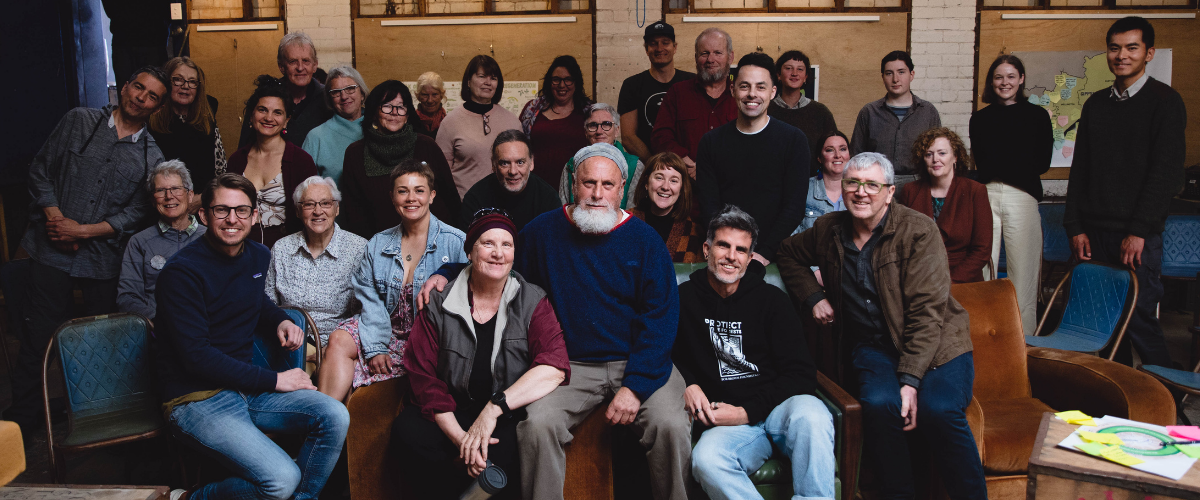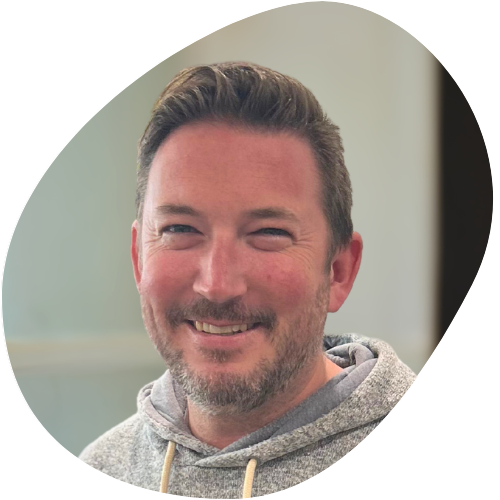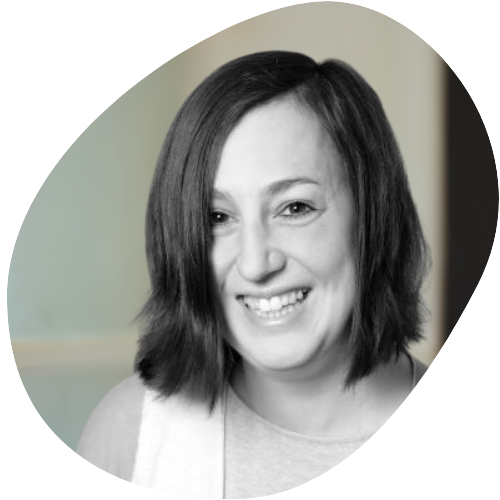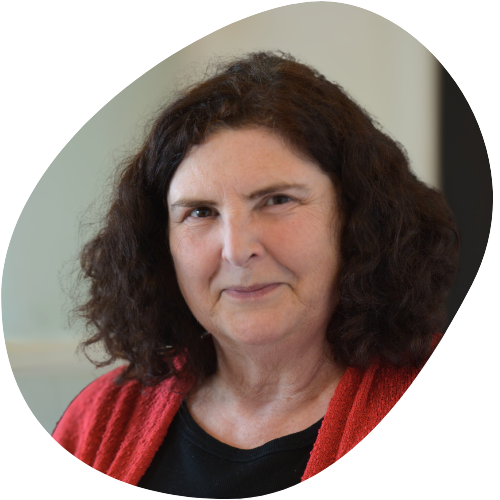
Our Journey
It started with a camp in a backyard.
Rhonda Renwick had just moved to the Latrobe Valley in the 1970s to begin her career as a teacher and psychologist. She noticed the kids who slipped through the cracks — the ones who missed out on excursions or school camps because of family hardship. So she pitched a few tents on her lawn and ran her own.
That simple act of care would quietly echo forward for decades.
Rhonda’s early years were shaped by two convictions: education should be accessible to everyone, and healing starts with being seen.
Working in schools across the Latrobe Valley, she saw firsthand how disadvantage robbed children not just of learning, but of joy and connection. She found creative ways to bridge the gap — running community programs, providing informal support to families, and always making space for the kids who didn’t quite fit in the system.
That same care guided her north in the 1990s, where she connected with Arrernte Elders in Mparntwe (Alice Springs). Together, they envisioned a place of cultural strength and healing — a space where Western health practices and Indigenous knowledge could coexist with respect. That vision became Akeyulerre Healing Centre, fully governed by First Nations people, and still a powerful presence today.
This was a time of quiet building — of relationships, of trust, and of learning how to walk alongside communities rather than ahead of them. It wasn’t about launching a foundation yet. It was about showing up, listening deeply and laying the groundwork for something more lasting.

By 2008, Rhonda’s quiet persistence had evolved into something that needed a more permanent structure — not to formalise the heart of the work, but to extend its reach and sustainability.
Alongside long-time friends and collaborators Kathy Havers and Ann Shanley, she founded the Kindred Spirits Foundation. The name reflected the way they approached everything — with care, connection, and a belief in walking beside others. The goal was simple but powerful: to support communities to build stable, lasting livelihoods and create fairer access to opportunity.
In 2010, a pivotal gathering took place at Lake Bennett, outside Darwin. Elders and leaders from Wadeye and the broader Thamarrurr region came together for a strategic retreat — a time for deep reflection and long-term planning. It was a space for stories, visioning, and truth-telling, shaped by the strength of Country and community.
That retreat sparked a new chapter in Wadeye. Kindred Spirits began working more closely with local families, listening to what mattered most to them. In time, that led to the creation of a Kakadu Plum enterprise, supporting women to harvest bush foods on Country and earn an income while continuing cultural practices that stretched back thousands of years.
In 2012, Rhonda’s children — Gregor, Rebecca and Karissa — formally joined the Foundation as directors. It became a true family endeavour, spanning generations, but always grounded in the same values that shaped those early backyard camps.
In the years that followed, Kindred Spirits helped launch the Big Red Kidney Bus, an initiative of the Tripodi family in Traralgon. The idea was bold: to bring mobile dialysis units to people in regional and remote areas so they could travel — even take a holiday — while still receiving life-saving treatment. The first bus hit the road in 2014, and by the time the program expanded nationally, five were in operation across Australia, improving access for countless families.
This period marked a turning point. The Foundation was becoming a trusted ally — not just funding projects, but helping nurture and sustain them in ways that honoured local leadership, cultural knowledge, and place.
As the work expanded, so too did the need for greater flexibility — to form new partnerships, receive public donations, and work alongside a broader range of collaborators. In 2016, Kindred Spirits Enterprises (KSE) was born.
The creation of KSE marked a quiet evolution — from a private foundation to a registered Public Benevolent Institution (PBI). But the intent stayed the same: to support work that was community-led, culturally grounded, and long-term in its vision.
That same year, Kindred Spirits deepened its investment in Aboriginal and Torres Strait Islander leadership by partnering with Seed Foundation Australia. The goal: to grow the number of Indigenous health professionals by supporting students with scholarships, resources, and a clearer path to university and vocational training. Just as importantly, the work built health literacy that could return to and strengthen their home communities.
Kindred Spirits also partnered with the University of Queensland and Menzies Health on the Growing the North Strategy, a multi-layered approach to health and wellbeing. The initiative supported culturally informed training for health staff and created new opportunities for local students to study within their own communities — with the support of Kindred Spirits scholarships and learning tools.
The organisation continued to walk alongside Akeyulerre Healing Centre, which remained under the leadership of Arrernte people. In 2016, Kindred Spirits gifted the land on which the centre operated back to the Arrernte community — a gesture that recognised the importance of permanence, cultural sovereignty, and local ownership.
These years were about building infrastructure — not just physical or financial, but relational. Quiet scaffolding to support bold, locally driven visions. The shape of Kindred Spirits had changed, but the spirit remained the same: backing people, not programs, and always leaving space for communities to lead.

By the start of the decade, Kindred Spirits had grown into something quietly powerful — a steady presence behind the scenes, supporting people with vision and courage to lead change in their communities.
In 2019, a wellbeing officer named Ben Tunks stood up at a Gippsland regional forum and gave a presentation that stopped the room. He spoke about the young people at his Traralgon school — kids arriving hungry, carrying trauma, struggling to learn. He didn’t ask for charity. He asked for a community response.
Kindred Spirits said yes.
That conversation became the beginning of The Little Village Project — a community-backed initiative supporting students through tailored, evidence-informed interventions that remove barriers to learning. What began at Stockdale Road Primary School soon expanded to other local schools. By 2024, five were part of the village, with many more signalling interest. That same year, with support from the Latrobe Health Assembly, Ben officially joined the Kindred Spirits team to lead the project he had sparked.
Meanwhile, Kindred Spirits partnered with the Black Dog Institute to deliver accredited mental health training to over 400 workers across Gippsland. The Shared Value Initiative, supported by the Department of Families, Fairness and Housing, was later scaled across key sectors including health, energy, manufacturing and forestry.
In 2022, Kindred Spirits signed an MoU with Kurnai College, laying the foundation for a new way of supporting young parents to stay engaged in education. One year later, in partnership with Kids First Australia and the Latrobe Health Assembly, the Kurnai Young Parents Program Mentoring Initiative launched — pairing young parents with mentors who offered encouragement, guidance and real-world connection.

While deepening its roots in the Latrobe Valley, Kindred Spirits was also looking ahead — supporting broader, regenerative work across Gippsland.
In 2023, a weekend workshop in Warragul, hosted by WWF-Australia, brought together a diverse group of changemakers from across the region. Inspired by the vision of Regen Melbourne, the group explored whether Gippsland could lead its own regenerative movement — one grounded in local values, place-based thinking, and community voice.
Kindred Spirits stepped forward to support a six-month pilot of what would become Regen Gippsland. Under the leadership of Sarah Tate, and later joined by Alex Lieb, the project sparked three community co-design sessions and laid the groundwork for the Gippsland Doughnut — a region-wide model for ecological, economic, and cultural wellbeing.
As 2024 approached, Kindred Spirits extended its support to shape the next phase of Regen Gippsland, helping embed regenerative practice across community, enterprise and policy conversations.
At the same time, multi-year partnerships with AGL Loy Yang and the Latrobe Health Assembly provided vital support for the sustainability and expansion of The Little Village Project. Long-trusted relationships — like the one with Akeyulerre Healing Centre in Mparntwe — continued to evolve with care and respect.
The work today spans schools, regions, industries, and landscapes. But the approach hasn’t changed. Kindred Spirits continues to walk quietly and steadily beside those it serves — listening deeply, backing people over programs and believing in what becomes possible when communities lead.
Our People

Karissa O'Halloran
Board Director

Gregor Renwick
Board Director

Ashleigh Dalton
Projects Officer

Ben Tunks
The Little Village Project Founder and Lead








